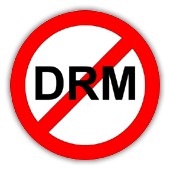Weekly News Roundup (31 August 2014)
Hello! Hope everything’s been well for you this week? Me? I’ve been re-watching Joss Whedon’s Firefly on Netflix recently, and it’s such a shame that this show was cancelled only after 14 episodes. Yes, there was a movie, but you could just see the great chemistry the cast had, and the great potential in writing, for a show that should have lasted many seasons. Oh well.
As for this week’s WNR, there’s a bit of an Australian focus this week. Not surprising considering that’s where I live, but still a relative rare event.
![]()

Australia’s Internet filter will be only slightly less useless than the contraption shown in this picture
The Australian focus starts with the launch of a new ad campaign that mocks the government’s attempts to basically give rightsholders everything they want. The ad, which you can watch here, pokes fun at the useless anti-piracy solutions that the government/Hollywood has proposed, specifically website filtering. Consumer advocacy group Choice crowdfunded this ad campaign and wants to tell the government that there are better ways to stop piracy, including getting rid of the “Australia tax” (the price premium we pay here in Australia for pretty much everything, from iTunes purchase to Blu-rays to game consoles for no other reason than because we live in Australia), making services such as Netflix available locally (Choice recently urged all Australians to cancel their overpriced cable subscriptions and sign up to Netflix via a geo-unlocking service), and other market based solutions, other than relying on government intervention and protectionism.
This launch of this new ad campaign making fun of useless Internet filters coincides with the MPAA releasing new research that shows website blocking, in particularly the blocking of the Pirate Bay, has actually worked really well. The MPAA’s research shows that visits to infringing sites in the UK, after they were blocked, were down 90%, or 74.5% when proxies were taken into account. Of course with these kinds of research, it’s always what they don’t tell you that’s key. What the MPAA doesn’t say is how this has affected overall traffic for sites like The Pirate Bay (traffic to the world’s most famous piracy site has actually doubled since 2011, after many countries around the world started blocking the site), and whether people were simply switching from one blocked site to another smaller unblocked one. Or what about stats showing actual downloads have decreased, since one can get torrents from many places, and even straight within certain BitTorrent clients without the need to even visit a site like The Pirate Bay. Has the piracy rate dropped along with the visits to site like The Pirate Bay?
And most importantly, has revenue actually increased now that website blocking has proven to be “super effective” according to the MPAA? After all, that’s the whole point of fighting piracy, isn’t it?
One company that does seem to understand that sometimes fighting piracy is pointless is Netflix. It has been revealed this week that their original show ‘Orange is the new Black’ is the second most pirated show in the world, behind ‘Game of Thrones’. This may at first seem surprising considering how cheap Netflix is, but then when you take into account how countries Netflix isn’t available in, things start to make more sense. The linked to WashPo article above does a disservice to its readers though by first trying to suggest how this stat means that Netflix isn’t the solution to piracy that others (like myself) have claimed it to be, and to provide a quote later in the article from Netflix’s chief saying piracy is not “too bad in the US”, which then backs up the point that “thefts of Netflix’s titles are most rampant in Australia and other countries where Netflix isn’t available. Hastings has pointed to a decline in piracy in Canada since Netflix began offering its service four years ago.”
Kind of an important point to the whole news story to be putting “below the fold”, don’t you think?
——
Is GOG taking on Hollywood? Not really, but the DRM-free gaming company now offers gaming related DRM-free videos for their customers to purchase, which is a step in the right direction. Included are titles like ‘Once Upon Atari’ and ‘Indie Game: The Movie’, and they start at $5.99. But once you purchase the video, you’ll have it forever and won’t have your access permissions dictated by a DRM that may one day be retired. Plus, you can also copy, convert and basically do anything you want with it, the kind of ownership rights that you get with almost every other kind of non-digital purchase.
With DRM practically non existent for music (and the sky clearly hasn’t collapsed), it’s now only gaming and movies that that still cling on to this outdated concept. Yet, if you think about it, the only difference between DRM for music and for these other types of content is … well, not much. In fact, the only thing I can think of is the file size and value (if you don’t count the constant stream of discounted games on Steam, or the ever declining price of movies on Blu-ray and DVD), but surely with music being smaller in size and taking less time to consume, it is an even bigger target for piracy compared GB movies and games.
It was also interesting to hear GOG reveal that most studio officials they talked to knew that DRM was pointless, but it’s more the legal departments that are closing the door on DRM-free stuff. The same officials also said they are willing to follow other’s leads, but none wanted to be the first to embrace DRM. This is why GOG’s attempt is admirable, even at this early stage with the minuscule library of available video titles. It could very well be the first step towards something that consumers have wanted for a long time.
![]()
Back to Australia again, but not too far away from the world of GOG and digital distribution. Other than DRM, the big problem with digital distribution at the moment is resale and refund (these big three problems is what got Microsoft into trouble with its original Xbox One vision, let’s not forget). Even for a platform as enlightened as GOG, resale and trading is still a big no no, and the DRM-free nature of the games on there makes it even harder to allow for a trading/refund system (which will require some for of digital rights management, if the seller has to lose his/her right to the game after a sale/trade). While some genius somewhere comes up with a way to do this without DRM, the issue of refunds does still differentiate a service like GOG and Steam.

Steam – people paying for games they don’t want to play, and can’t get refunds to games they want to play but can’t
GOG’s refund policy, which you can read here, is pretty straight forward – a 30 days money back guarantee if there’s a problem with the game. Steam’s policy, unfortunately, is also very straight forward – no refunds whatsoever! And it’s this policy that has gotten the popular and generally well liked company in trouble with Australia’s official consumer watchdog, the ACCC, which has sued Steam’s owners Valve for breaking Australia’s consumer laws in regards to refunds.
Under Australian consumer law, retailers must provide refunds for goods not fit for service, and this is on top of any manufacturer/retailer warranties for the product. Any retailer that tries to deny Australian consumers these core rights can get into trouble, and that’s what the ACCC claims Valve has done with hits strict no-refunds policy for Steam games.
Valve has vowed to cooperate fully with the ACCC, and so I suspect one of the geniuses that work for them might finally come up with a system for refunds (which, unfortunately, may only be applicable in Australia). To be fair, it’s not all Valve’s fault – much of the fault lies with paranoid game publishers afraid gamers will take advantage of such a system (or simply don’t want to have to start worrying about people actually wanting their money back for crappy products). Hopefully, the ACCC will force Valve to produce a favorable solution to the problem.
While refunds are a big issue on Steam, the other big issue is almost at the other end of the spectrum – people buying games and then never playing them! Ars Technica’s Steam Gauge tool crawled through public Steam user profiles and found that 37% of games have never even been loaded, let alone played. Anyone who has participated in a Steam sale and got caught up in the impulse buying madness will not be surprised at this figure (or may be surprised that it isn’t higher!). Doing a quick count of my own Steam library, I found (not including multiple copies/bundles/non standalone titles) 146 games, of which 69 had been loaded and played at least once (and many only for a few minutes). This means 77 games that I’ve purchased (or gotten for free, to be fair) that I’ve never loaded and played, or 52%. Ouch!
Maybe I should ask Steam for a refund on these!
——
That’s it for this week. Hope you’ve enjoyed this issue, see you next week.

